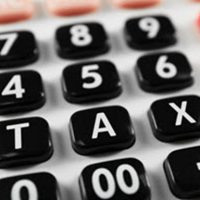Bankruptcy and Past-Due State Taxes

Mostly because of its recent and well-chronicled budget problems, the Prairie State has one of the highest state income tax burdens in the country. Most of that burden falls on self-employed people. When their incomes drop, they often suspend estimated tax payments. That suspension comes back to haunt them in the spring, when they have big tax bills they cannot pay.
As outlined below, the two major kinds of consumer bankruptcy could get the debtor out of a very big financial hole, especially if a Chicago bankruptcy lawyer advocates for the debtor throughout this legal proceeding. Tax discharge rules in a Chapter 7 are extremely complex, and the law regarding Chapter 13 bankruptcy and past due taxes is rather uncertain. An attorney works hard to ensure the court resolves these questions in the debtor’s favor.
Discharge in a Chapter 7
As a general rule, unsecured debts which aren’t tied to physical collateral are dischargeable in a Chapter 7.
This general rule doesn’t seem to fit in some situations. A Rooms-To-Go or other furniture store credit card is a good example. Technically, credit card debt is unsecured debt. However, the cardholder used the card to buy furniture, which makes the account a secured debt.
Usually, a Chicago bankruptcy attorney successfully classifies such an obligation as a dischargeable unsecured debt. Rooms-To-Go doesn’t want used furniture that might be in poor condition. It would rather write off the debt.
Other unsecured debts are priority unsecured debts that are dischargeable in certain situations. Past due state income taxes, a priority unsecured debt, are dischargeable if the:
- Taxing authority hasn’t assessed the debt in the last 240 days,
- Returns have been on file at least two years, and
- Tax debt is at least three years old.
“Assessment” is an accounting term that basically means tallying the debt. Usually, if the taxpayer hasn’t received a letter in the last eight months that includes the total balance due, the debt hasn’t been assessed.
Other priority unsecured debts include alimony, child support and other FSOs (family support obligations), student loans, and a few other government-guaranteed loans.
“Discharge” means a bankruptcy judge eliminates the legal obligation to repay a debt. A bankruptcy judge doesn’t have the power to remove the collateral effects of a debt, like a lien filed before the Automatic Stay took effect.
Repayment in a Chapter 13
The Automatic Stay, which applies in a Chapter 13 as well, prohibits most creditor adverse actions against debtors, such as:
- Foreclosure,
- Repossession,
- Lien placement,
- Wage garnishment, and
- Bank account levy.
It’s a bit unclear if the Automatic Stay also prohibits a taxing authority from adding penalties and interests to unpaid tax bills. That’s why a lawyer must advocate for debtors in these situations.
The Automatic Stay usually remains in effect until the judge closes the bankruptcy. A Chapter 13 lasts three or five years, mostly depending on the debtor’s income. Thirty-six or sixty months is usually sufficient time to gradually erase even the largest tax debt.
Many people with tax debt file a Chapter 7 after a Chapter 13. They aren’t eligible for a discharge, but they do get extra time to pay back taxes while the Automatic Stay protects them from creditor adverse actions.
Work With a Detail-Oriented Cook County Lawyer
No matter what kind of financial problem you are having, there’s a way out. For a free consultation with an experienced debt reduction attorney in Chicago, contact the Bentz Holguin Law Firm, LLC. After-hours and home visits are available.


